Tehran Blasts US Concern Over Strengthening Ties With Damascus

Iran blasted US concern over deepening ties between Tehran and Damascus with a scathing outburst against the "evil regime".

Iran blasted US concern over deepening ties between Tehran and Damascus with a scathing outburst against the "evil regime".
“The anger of an evil regime, whose wind was taken out in Syria and the entire region by Iran and the axis of resistance is natural,” Iran’s Foreign Ministry Spokesman Nasser Kanaani blasted on Thursday.
Kanaani threatened that Washington must end its “aggressive presence” in war-torn Syria.
The US State Department warned Wednesday that closer ties between Iran and Syria should be of great concern not only to US allies, but also to the world more broadly.
"These are two regimes that have continued to partake in malign destabilizing activities, not just in their immediate countries, but also in the region," State Department Spokesperson Vedant Patel said.
That same day, Iranian President Ebrahim Raisi met his Syrian counterpart Bashar al-Assad in Damascus in his first visit since Syria's war began in 2011, underlining close ties as Syrian relations with Arab states thaw.
In an interview with pro-Iran broadcaster al-Mayadeen before his trip, Raisi said he planned to "consolidate and develop" ties with Syria and other allies, including the Lebanese armed group Hezbollah.
Assad and Raisi signed a memorandum of understanding on long-term comprehensive strategic cooperation while the delegates signed 15 separate documents.
Raisi's visit comes as Iran and regional rival Saudi Arabia rebuild relations after years of tensions, and as Arab states that shunned Assad - including Riyadh - rebuild ties with his government.
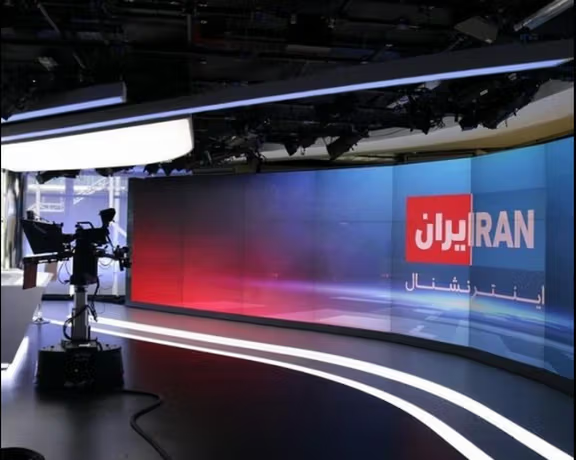
Britain’s shadow security minister has slammed threats from the Islamic Republic against journalists based in the UK covering Iran’s protests.
Speaking on World Press Freedom Day, Holly Lynch, the Labour MP for Halifax, said many of the threats to which the British security services and counter-terrorism police are responding to relate to the protection of journalists.
She said the threats by the Iranian regime include “assassination and kidnap plots against UK residents who are perceived as enemies of Iran owing to their coverage of the protests and the regime’s brutal crackdown”.
After a significant escalation in state-backed threats from Iran and advice from London’s Metropolitan Police, Iran International TV reluctantly closed its London studios and moved broadcasting to Washington DC in February. It is part of a long history from the regime which has for decades targeted dissidents and independent journalists who found refuge in other countries.
Faced with nationwide anti-government protests since mid-September, the Islamic Republic has blamed foreign-based Persian broadcasters such as BBC Persian and Iran International of “fomenting unrest”, while all media in the country are under tight government control and present protesters as “rioters” and “terrorists”.
In parallel, US State Department Deputy Spokesman Vedant Patel said Washington is committed to a free and independent press and commends the crucial work of journalists around the world.
“In honor of World Press Freedom Day, we call on countries to protect journalists and hold to account those who commit crimes against them,” he wrote in a tweet Wednesday.

Iran has humiliated Israel by organizing “Islamic resistance”, commander of the Revolutionary Guard’s Quds Force, Esmail Qaani said in Tehran on Wednesday.
“At this point, Israel has reached a level of humiliation that it has surrounded itself with barbed wire and radars to prevent infiltration,” Qaani told a gathering of young clerics.
The commander who replaced Qassem Soleimani after his killing by the order of former US President Donald Trump in January 2020, is in charge of Tehran’s militant proxies in the region, including Palestinian groups and the Lebanese Hezbollah.
Although Qaani is not a strong operator like his predecessor who organized a large network of proxy forces, Iran succeeded in inflaming tensions between Israel and Palestinian militant groups this year, which led to military clashes in April.
Qaani’s remarks came as Islamic Republic’s president Ebrahim Raisi was in Damascus for a two-day visit, for the first time by an Iranian head of state since civil war broke out in 2011.
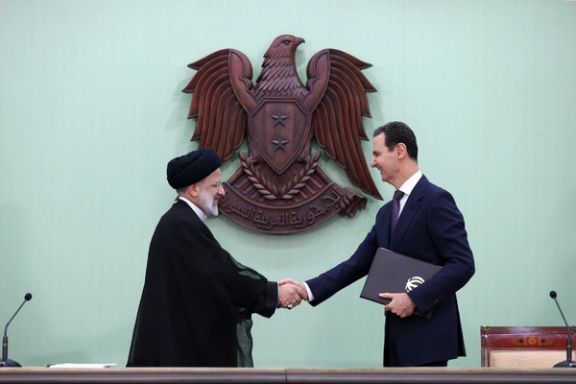
Iran has a large military presence in Syria, where Israel says Tehran is building up forces to threaten its northern border and use the country as a supply route to arm Hezbollah in Lebanon.
Qaani boasted that because of Tehran’s efforts to instill “the spirit of resistance,” some days up to 30 attacks take place against Israel “that their media try to hide.”
He added that the Islamic Republic is so strong that “Today, America, Israel, NATO and others have mobilized” to destroy it.
Qaani’s remarks came as Iran seized a second oil tanker in the Persian Gulf in a span of days, despite the United States deploying a guided-missile submarine in the region in April.
The Bahrain-based US Fifth Fleet said Wednesday that the Panama-flagged oil tanker Niovi was seized by Iran's Islamic Revolutionary Guard Corps Navy (IRGCN) while passing through the narrow Strait of Hormuz.
The incident happened in international waters, as swarms of Iranian armed speed boats surrounded the vessel. It is not clear why the US Navy, which has a strong presence in the region, and was apparently aware of the unfolding seizure, did not intervene.
Asked by a reporter Wednesday why the United States does not respond to Iran’s actions, State Department Deputy Spokesperson Vedant Patel said, “When it comes to holding the – the malign Iranian regime accountable, we’ll continue to take steps to do whatever we can to protect the security of our allies and partners in the region, protect the security of the United States and its service members, and we continue to have a number of tools at our disposal.”
But clearly Tehran has decided to make oil shipping through the strategic Persian Gulf waters unsafe, potentially hurting vital oil traffic.
Saudi Arabia, which agreed to restore relations with the Islamic Republic in March after a seven-year hiatus, has not publicly reacted to Tehran’s actions in the Persian Gulf endangering oil shipments by its allies Bahrain and the United Arab Emirates.
It was expected that the Iranian regime would act more cautiously after emerging from its regional isolation following the agreement with Riyadh.
However, the calculus in Tehran might be different. The restoration of ties was brokered by China, which was seen as a blow to US influence in the Middle East. The Islamic Republic sees its alliance with China as a game changer.
“The shift in power from West to East has begun,” Qanaani said in his speech, referring to China becoming a diplomatic and military power in addition to its economic clout.
“In this shift the Islamic Republic should find its rightful place and with God’s help it will find it.”
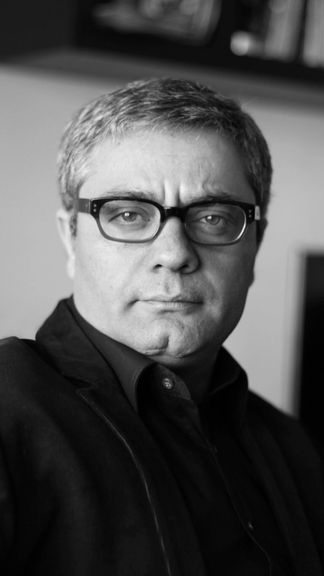
Dissident Iranian filmmaker Mohammad Rasoulof cannot participate in the Cannes Film Festival as he is barred from leaving Iran.
The Iranian film legend was due to be on the festival’s Un Certain Regard jury but along with scores of other celebrities and sports stars, is subject to a travel ban.
Other punishments levied by the regime to celebrities include bank account freezes and communications bans.
Rasoulof was temporarily released from Evin prison in February due to health issues, offering hope that he could attend the prestigious French film festival as a jury member.
However, when the festival announced the names of the jury members on Wednesday, Mohammad Rasoulof’s name could not be seen.
He has been under house arrest since 2017 when his film "A Man of Integrity" won the main prize at the Cannes Film Festival in the Un Certain Regard section.
Due to his anti-regime content, he was given six years in prison in 2010 that was reduced to a year on appeal, and he was also banned from making films for 20 years.
He defied the ban and went on to make his drama There Is No Evil, capturing Iranian society under the Islamic Republic regime, which won the Berlinale Golden Bear in 2020.
Rasoulof and his colleague Mostafa Al-e Ahmad were arrested in July 2022 after signing an appeal along with dozens of other filmmakers and film industry workers. The appeal called on security forces to “lay down” their weapons.
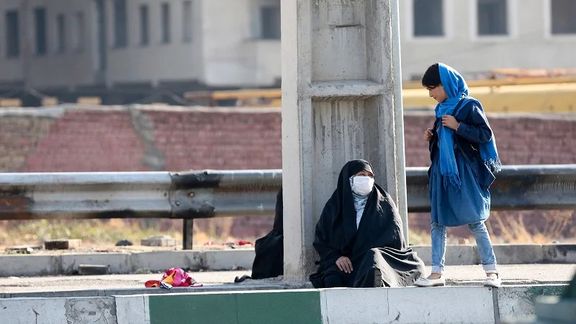
The Iranian man took a jar of homemade pickles to the neighborhood shop and asked to barter it with a chicken as he had no money left, in the oil-rich country.
Media in Tehran and other cities are reporting dozens of similar cases as no one actually knows how much the annual inflation rate is after the government stopped publishing its monthly statistics.
Aftab News, a website which dares to be more critical of the authoritarian regime, quipped Wednesday that President Ebrahim Raisi still insists, “The progress by Iran has angered the enemies,” meaning the United States and its allies.
Mehr News Agency, a conservative website and a supporter of Iran’s hardliners reported that families share rented apartments, as they cannot afford the soaring security deposit and monthly rent.
Others simply must move to cheaper and cheaper areas, getting farther than the cities and have to commute somehow if they do not own a car. Vehicles have also become unaffordable for many with the cheapest options costing billions of rials.
Ordinary Iranian salaries are less than $200 a month, while rents for simple apartments have soared to beyond $300. Couples must work two jobs just to pay the rent.
Although Iranians have been losing their purchasing power since 2018 when their currency nosedived, the situation took a turn for the worse last September as the rial began to fall further, losing half its value. The US dollar rose from around 260,000 rials last August to near 550,000 in late April.
The minimum monthly income needed for bare necessities for a family of 3.3 people remains at around $500 a month, but the rials a family earns buys much less each week.
The political leadership, however, continues its nuclear program and its anti-West policies, so far refusing to compromise with the United States.
Even some real estate agents will soon be forced to go out of business as they cannot sell properties overpriced for the impoverished population. Some agencies close just one deal a month and cannot even afford rent for their own office.
Etemad newspaper reported that people who just a few months ago were helping others in need are now unable to afford their own groceries. Prices for eggs, milk, meat and rice have doubled in less than a year.
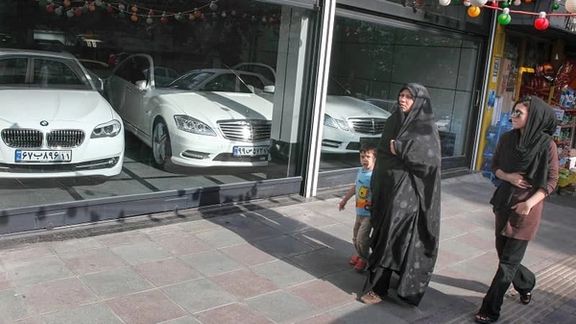
“Until a few months ago there were upper middle-class people who were quietly leaving some money with neighborhood stores so that they could give out food to needy customers who were asking to buy things on credit,” Etemad wrote, “but in the last 6-7 months these philanthropists have disappeared.”
One such person who went to the butcher to pay the debts of those who could not pay, realized that most people were buying only chicken skin and bones, the newspaper reported.
One kilogram of chicken fillet now costs 1.8 million rials, while an ordinary salary is around 70,000 rials. A few months ago, the same chicken meat was sold at 630,000 rials. Now, people are forced to buy the cheaper parts, such as skin or stripped bones.
In poorer Tehran neighborhoods, even butchers are opting to close shop and start another business as far fewer people can afford beef or chicken.
Desperate people try to barter homemade jams or pickles for protein foods.
As million of people are becoming impoverished, Aftab News quotes psychologists and doctors about the damage inflicted by malnutrition on children and adults alike. While mothers have to breastfeed babies with intake of nutritious food, adults face more health problems, such as cancer, that many say has spiked in recent years.
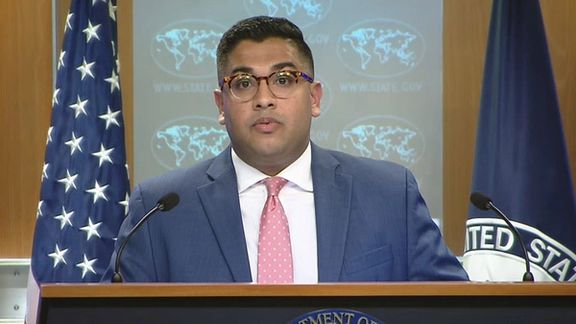
US State Department said Wednesday that closer ties between Iran and Syria should be of great concern, not just to US allies and the region, but to the world more broadly.
Department spokesperson, Vedant Patel, told reporters Washington has made clear to partners that it does not support others normalizing ties with Damascus.
Iranian President Ebrahim Raisi met his Syrian counterpart Bashar al-Assad in Damascus on Wednesday in the first visit by an Iranian head of state since Syria's war began in 2011, underlining close ties as Syrian relations with Arab states thaw.
Speaking to pro-Iran broadcaster al-Mayadeen on the eve of his visit, Raisi said the trip would "consolidate and develop" ties with Syria and other allies, including Lebanese armed group Hezbollah, which also intervened in Syria on Assad's behalf.
Raisi's visit comes as Iran and regional rival Saudi Arabia rebuild relations after years of tensions, and as Arab states that shunned Assad - including Riyadh - rebuild ties with his government.
Assad, speaking alongside Raisi, welcomed "the development" of ties between Tehran and Riyadh.
Raisi and Assad signed a long-term strategic cooperation agreement, including a memorandum of understanding on oil industry cooperation, the Syrian state news agency reported.
Raisi praised Syria for resisting what he described as U.S. pressure and confronting "takfiris", a term used to describe jihadists such as Islamic State. "Iran will always stand by Syria ... and supports its sovereignty," he said.
Raisi and Assad signed a long-term strategic cooperation agreement, including a memorandum of understanding on oil industry cooperation, the Syrian state news agency reported.
Reporting by Reuters